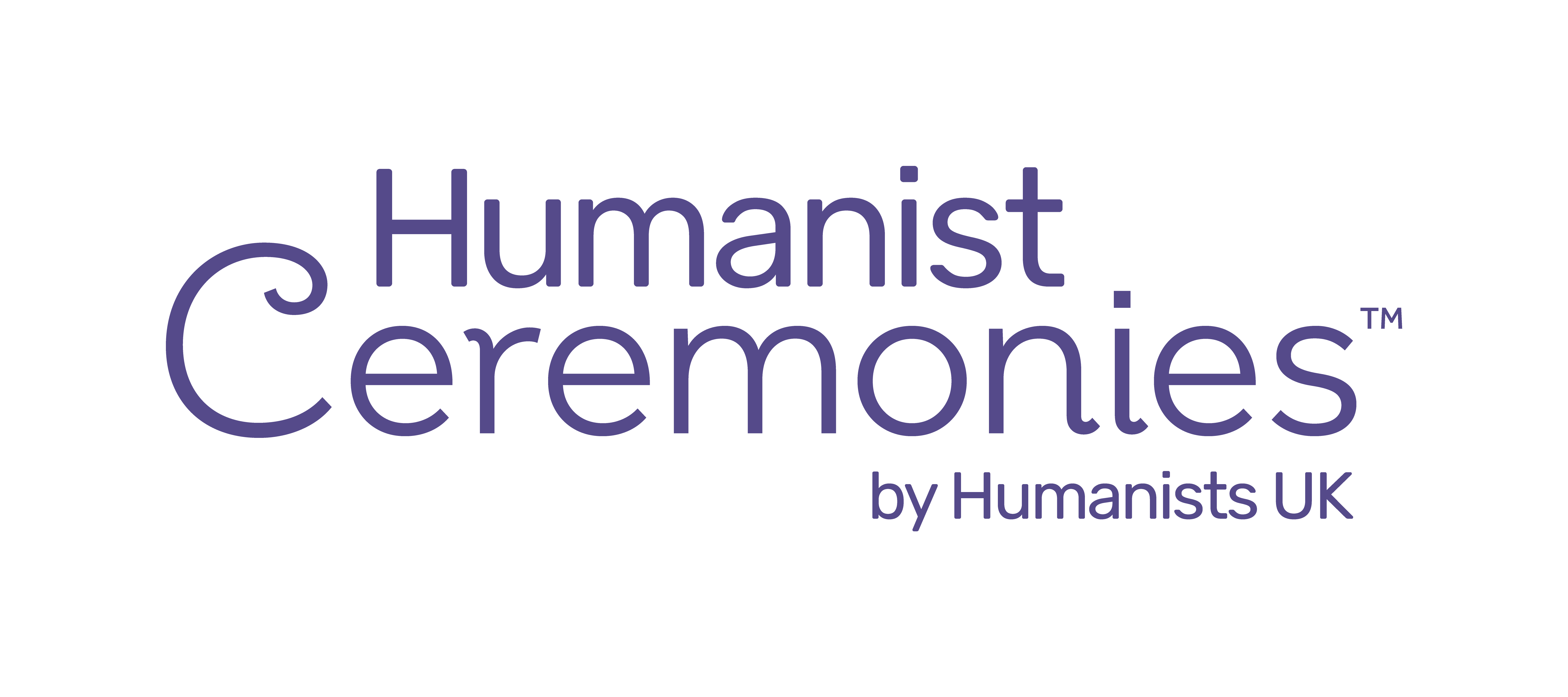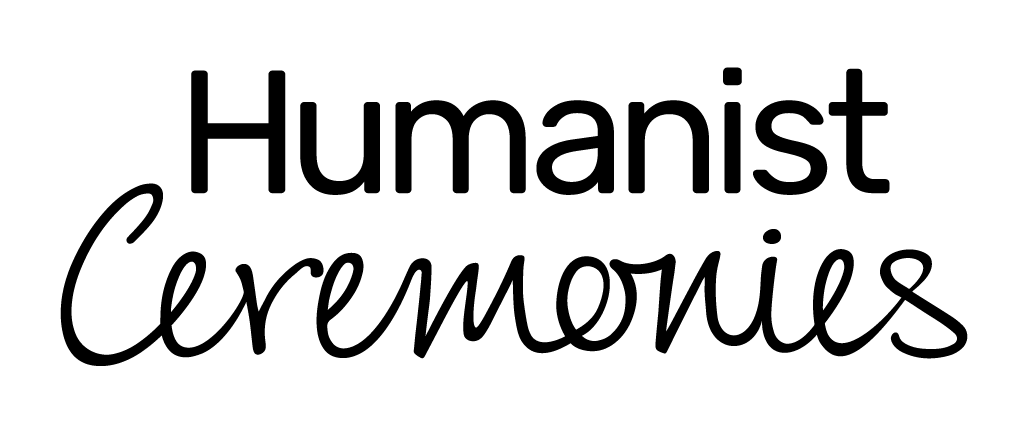FAQs
 What’s in a humanist wedding?
What’s in a humanist wedding?
Every ceremony I prepare is unique and tailor-made for the couple. However popular elements include an introduction, an entrance, a talk about love and commitment, vows, readings and music, and sometimes a symbolic ritual or gesture, and a declaration of marriage. You may also want humour and guest participation! Religion or superstition are the only things not included.
How long are humanist wedding ceremonies?
The answer is – as long as you like. Having said that, up to 30 minutes is usual and allows for readings, music, vows and symbolic gestures, or any combination that is right for you.
Who can have a humanist wedding?
In short – anyone who wants one. You don’t need to be a member of anything or use a particular term to describe your beliefs: in fact, it’s not uncommon for couples with different beliefs (perhaps one with a religious belief, one humanist) to choose a humanist wedding ceremony.
What kinds of ceremonies do you prepare and conduct?
I’m accredited to deliver humanist weddings, wedding affirmations and vow renewals – anything to do with celebrating love. But I’m happy to consider any form of such a ceremony, so do get in touch if you have a different idea. I can deliver ceremonies in person or online, depending on Covid regulations (see here for current advice).
Do humanist ceremonies have legal status?
Currently humanist weddings don’t have legal status in England and Wales, so you will need a register office ceremony if you want legal recognition for your partnership. However there are many reasons why you may not wish for or be able to have a legal ceremony. Or you may simply want to mark your partnership in a unique way that reflects you and your values. In these cases a humanist ceremony can give your relationship a focus for the celebration of commitment.
We’re worried about writing vows and choosing readings – can you help?
Absolutely. I will work to find the right words and readings for you both during the planning process. I can also help you to decide whether you want family and friends to participate, or to step in and give readings myself if that’s what suits you. You can have vows, aspirations or commitments if you want – but there’s no obligation. You can write them yourselves, or I can help you. If you like, I will find out what you want and write them for you. There’s no right or wrong way to prepare or deliver vows, from reading them to each other, learning them or repeating them after me – together we can find the best way for you.
However if you want to choose readings and music, or write your vows, then that’s fine too – one of the joys of a humanist wedding is that you can choose anything that defines you as a couple (religion aside).
What venues can be used?
Often the venue is the same as for a reception. However, there are no limits (other than permission of the venue’s owner) – in a field, someone’s home, a forest, on a pier, in a safari park…
 How much does it cost?
How much does it cost?
My fees are: £500 Mon-Fri; £600 on Saturdays; and £750 on Sundays and Bank Holidays (compare this with fees for Richmond upon Thames registration officers to attend approved venues). The fee is payable 40% on appointment, 30% on delivery of a first draft and 30% one week before the wedding. It covers a planning meeting and all the time it takes me to get a finished script that is just right for you. It also includes a rehearsal and, of course, the ceremony itself, plus a presentation copy of the script and a certificate if required. Travel expenses over the cost of a one-day travel card within London are charged at cost plus 10%. All costs to be settled one week before the ceremony.
What is humanism?
Humanism means different things to different people – part of the point is to think for yourself. To me it means living the one life we have in a good way, without religion. This actively precludes hostility towards any religious belief or person holding such a belief – humanist weddings are open to all and positively welcome those of all beliefs and backgrounds. Humanism itself is an 18th-century word, though many trace the philosophy itself back to Socrates. A National Centre for Social Research survey research found that ‘More than half (53%) of the British public now describe themselves as having “no religion”’ – we are not a minority, though many would use different words to describe themselves, such as secular, atheist, rational, non-religious etc.
What about data and GDPR?
The information you give me (such as your name, phone number, email address and personal information) is used only to write and deliver your ceremony. I will store it securely and not sell or pass it on to any third parties. I will keep it in case you need my services again: if you want me to delete it after the ceremony, let me know in writing and I will of course do so. I may share a ceremony script with a fellow Humanists UK celebrant if I can’t take the ceremony for any reason.

